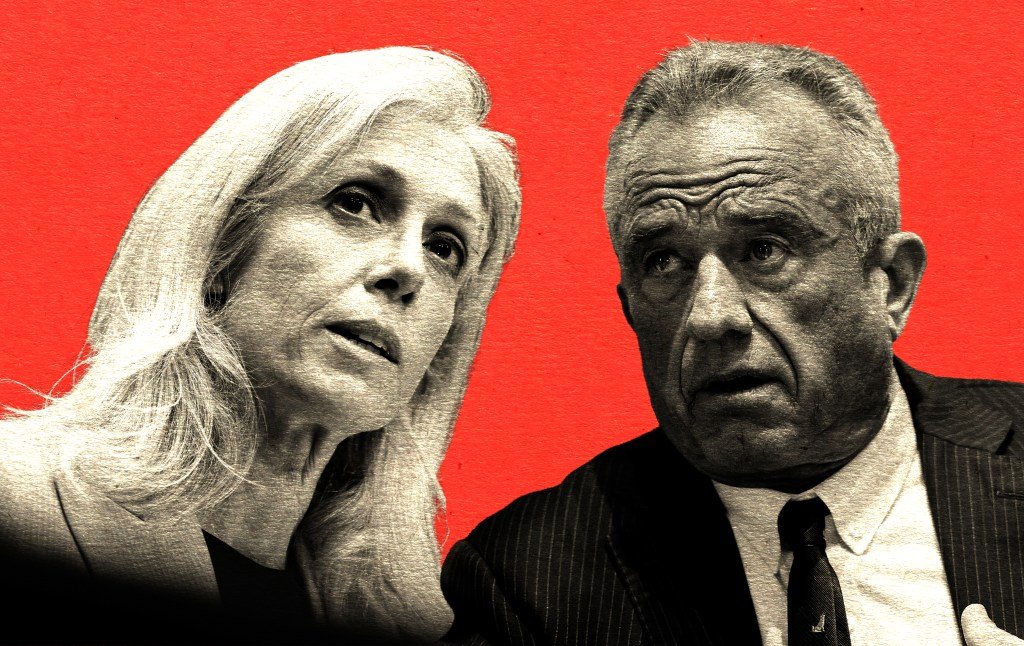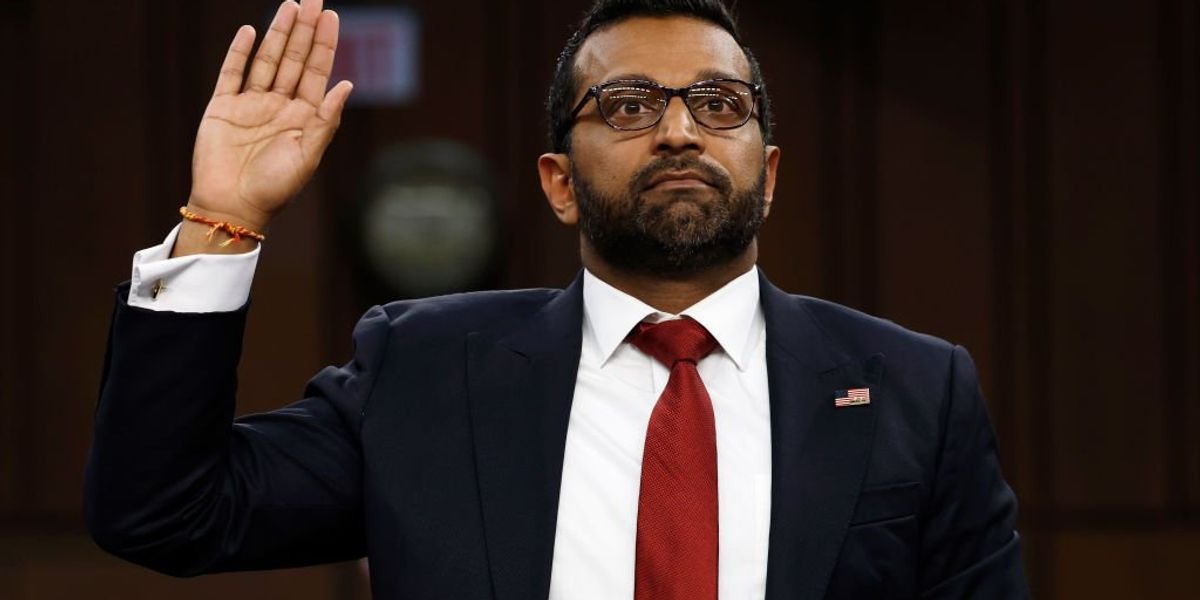
In June Nina Witkofsky, the acting communications director for the Centers for Disease Control and Prevention, held an all-hands meeting. It was the first time the agency’s scientists, researchers, public-health experts, and other employees gathered to hear from the CDC’s top leadership since Donald Trump became president again.
But employees were surprised and angry to learn the agency’s chief of staff, a lawyer with no public health experience named Matthew Buzzelli, had called into the meeting because he was sick at home. Like other executive branch employees, CDC staff had been instructed that in such situations they could no longer work remotely and must take sick leave. This rule, it seemed, did not apply to Buzzelli.
That wasn’t the only tone-deaf moment of the meeting. Witkofsky, who had worked as a communications aide at the CDC during Trump’s first term, made a lighthearted comment about how nothing in the building had changed—even a lunchbox she had left behind was still there. But for most CDC staff, the truth was quite the opposite: Everything had changed, and almost none of it for the better.
This week, things have gotten even worse. On Wednesday evening, the Trump administration announced CDC Director Susan Monarez, who had been confirmed by the Senate just last month, was out of a job. In the hours that followed, several of the agency’s top leaders resigned as well, though as of this writing Monarez’s lawyers maintain that she was not legally fired.
The morning following this chaotic defenestration of Monarez, the secretary of Health and Human Services appeared on Fox News to defend how his department is running the CDC.
“We need to look at the priorities of the agency, if there’s really a deeply, deeply embedded malaise at the agency,” said Robert F. Kennedy Jr.
There is indeed a malaise at the CDC headquarters in Atlanta, current staff say, but Kennedy and the Trump administration’s political appointees are the source of the infection, not the cure. “It feels like this administration is slowly dismantling CDC piece by piece,” one current employee told me. (The CDC did not return my request for a comment.) The Washington Post reported on Thursday that a top Kennedy aide at HHS, Jim O’Neill, would be the new acting CDC director.
The CDC is just one of numerous federal agencies targeted by the Trump administration as it looked to slash spending and pull apart a so-called “deep state” of entrenched bureaucrats. But the particular zeal with which Kennedy has proceeded to take on the country’s public health institutions has been acutely felt at CDC, which has seen layoffs, onerous directives, and political pressure to study supposed links between vaccines and autism.
The agency has been criticized across the political spectrum for its sclerotic response to the COVID-19 pandemic, and even its onetime director, Joe Biden appointee Rochelle Walensky, admitted in 2022 that the CDC needed an overhaul.
Yet Kennedy’s obsession with vaccines has warped those efforts in ways that have left employees feeling rudderless. Reporting indicates Monarez pushed back on Kennedy’s demand that she accept the recommendations from the CDC’s vaccine advisory committee now stacked with appointees who share the secretary’s anti-vaccine views. The resignation letters from three CDC leaders who departed this week indicated vaccines are at the center of the dispute.
“For the good of the nation and the world, the science at CDC should never be censored or subject to political pauses or interpretations,” wrote Debra Houry, the agency’s chief medical officer, in her resignation. “Vaccines save lives—this is an indisputable, well-established, scientific fact. Informed consent and shared decision-making must focus not only on the risks but also on the true, life-saving benefits that vaccines provide to individuals and communities.”
“There is indeed a malaise at the CDC headquarters in Atlanta, current staff say, but Kennedy and the Trump administration’s political appointees are the source of the infection, not the cure.”
It has been rough going for the CDC all year, even before the August 8 shooting at its headquarters by an alleged vaccine skeptic that left a local police officer dead.
Thousands have been laid off since April amid a major HHS reorganization (though some were later rehired). Severe restrictions on CDC staff publishing research and communicating with the press have been in place for months. Sources tell me Trump’s executive action reinstituting federal procurement requirements to “buy American” has limited the protective equipment CDC labs can purchase, and a change in department policy means that individual labs no longer have the credit cards to purchase their own new supplies or pay to service their equipment.
All of these changes have made the building a chaotic mess for months, much longer than the typical confusion that results from a presidential transition. That’s because of an incredible amount of political oversight—some might call it interference—into the everyday work of the CDC. Monarez, a microbiologist and career public health official with stints across the federal government, had actually been tapped by the new Trump administration as its first acting director. She was nominated by Trump to serve in the role permanently in March, and federal law required her to step down as acting director while she awaited Senate confirmation. But it seemed no one had been tapped to fill Monarez’s position in the interim.
So when Kennedy appeared before the Senate’s Health, Education, Labor and Pensions committee in May, Sen. Lisa Blunt Rochester of Delaware pressed the secretary about who, exactly, was the acting director. “She’s been replaced by Matt Buzzelli,” Kennedy said.
Despite Kennedy’s claim in the hearing that Buzzelli is a “public health expert,” the profile on the CDC website describes Buzzelli as a ”seasoned legal professional with a distinguished career as a trial attorney” but provides no obvious background or experience in public health. Instead, he appears to have been an extra layer of management above Monarez’s head.
The New York Times reported that despite becoming the director, Monarez had been “expected” to run decisions by both Buzzelli and Matt Buckham, the chief of staff at HHS. Buckham also has no apparent experience in public health but has worked for conservative Republicans on Capitol Hill and held roles at the Heritage Foundation, with the Conservative Partnership Institute, and in the White House during Trump’s first term.
The CDC, which has been based in Atlanta since its establishment in 1946, has rarely experienced that level of interference from D.C. Employees have been caught in the crosshairs of a political fight over vaccines that has little to do with the surveillance and diagnostic work that the majority of the agency’s scientists work on.
“We were all hopeful that when Monarez was confirmed, we’d have someone who would get to know us and hopefully things would start turning around,” said the current CDC employee. But with no director and the exodus of senior leadership? “It is going to crush whatever hope we had left,” this person said.



